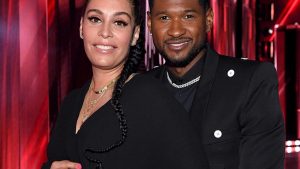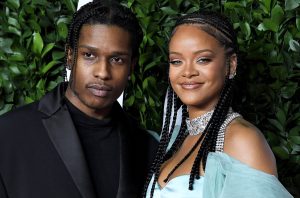A month after HBO aired the bombshell two-part documentary Leaving Neverland, Michael Jackson‘s family have struck back with a documentary of their own.
Directed by Eli Pedraza and released on YouTube on March 30, Neverland Firsthand: Investigating the Michael Jackson Documentary aims to refute the allegations of Wade Robson and James Safechuck, who claimed in the HBO film that Jackson sexually abused them both as children. The star, who died in June 2009, repeatedly denied any wrongdoing prior to his death, and in 2005 was acquitted in a child sex abuse case leveled against him in California.
The new 30-minute film features interviews with Michael’s nephew Taj Jackson and niece Brandi Jackson, as well as with his longtime technical director Brad Sundberg, who regularly stayed at Michael’s Neverland Ranch estate.
“Not in a million years did I ever see a child around Michael Jackson that looked like they had been distressed, hurt, abused,” Sundberg says in an interview with producer Liam McEwan included in the film. “[Neverland] was such a peaceful, safe, fun place.”
Brandi revealed that she and Robson dated for seven years. “He has always been a bit of an opportunist,” she says, before alleging that Robson went public with the sex abuse claims in an effort to benefit financially. “He knows how to position himself into different situations that will benefit him in a financial way.”
Brandi added: “He’s saying that he was in a relationship with my uncle, that they were in love, and that they were having a relationship, if you will. He’s saying that my uncle kept him from women, which is not true. We were just talking about how my uncle put us together. It would discredit the things that he’s trying to claim, and I find it fascinating that he thinks he’s able to just erase 10 years of his life.”
An attorney for Robson responded to Brandi’s allegations in a statement to Billboard on Thursday. “Ms. Jackson was not with Wade and Michael Jackson when the sexual abuse occurred, and as such, she has nothing relevant to say about the topic,” the statement read.
Taj Jackson, who has vocally defended his uncle in the past and previously set up a GoFundMe to raise money for a documentary to rebut the HBO film, claims that Jackson’s inherent generosity made him a target for repeated lawsuits over the years. “When you have a certain niceness, people take advantage of it,” he says.
Before Leaving Neverland aired in early March, Jackson’s estate filed a $100 million lawsuit against HBO. According to court documents obtained by PEOPLE, executors for the estate claim that airing the film violates a non-disparagement clause in a 1992 contract, written ahead of a televised concert that year — in which HBO agreed to not speak ill of Jackson.
“Michael Jackson is innocent. Period,” the lawsuit says in part, before referencing the 2005 criminal trial in which he faced multiple counts of child molestation, as well as additional grand jury charges including conspiracy involving child abduction, false imprisonment, and extortion. “In 2005, Michael Jackson was subjected to a trial — where rules of evidence and law were applied before a neutral judge and jury and where both sides were heard — and he was exonerated by a sophisticated jury.”
Jackson’s estate also issued a statement to PEOPLE in January ahead of the Sundance Film Festival premiere and blasted the documentary (directed and produced by Dan Reed) as a “pathetic attempt” to make money off of the singer.
“This is yet another lurid production in an outrageous and pathetic attempt to exploit and cash in on Michael Jackson,” the statement read. “Wade Robson and James Safechuck have both testified under oath that Michael never did anything inappropriate toward them. Safechuck and Robson, the latter a self-proclaimed ‘master of deception’, filed lawsuits against Michael’s Estate, asking for millions of dollars. Both lawsuits were dismissed.”
“This so-called ‘documentary’ is just another rehash of dated and discredited allegations,” the statement continued. “It’s baffling why any credible filmmaker would involve himself with this project.”
The documentary’s director, however, rebuked these claims in a statement to PEOPLE. “Anyone who sees the film will know it is solely about hearing the stories of two specific individuals and their families in their own words, and that is a focus we are very proud of,” Reed said. “We feel no need to include the opinions of people with no direct knowledge of what happened to those individuals.”







